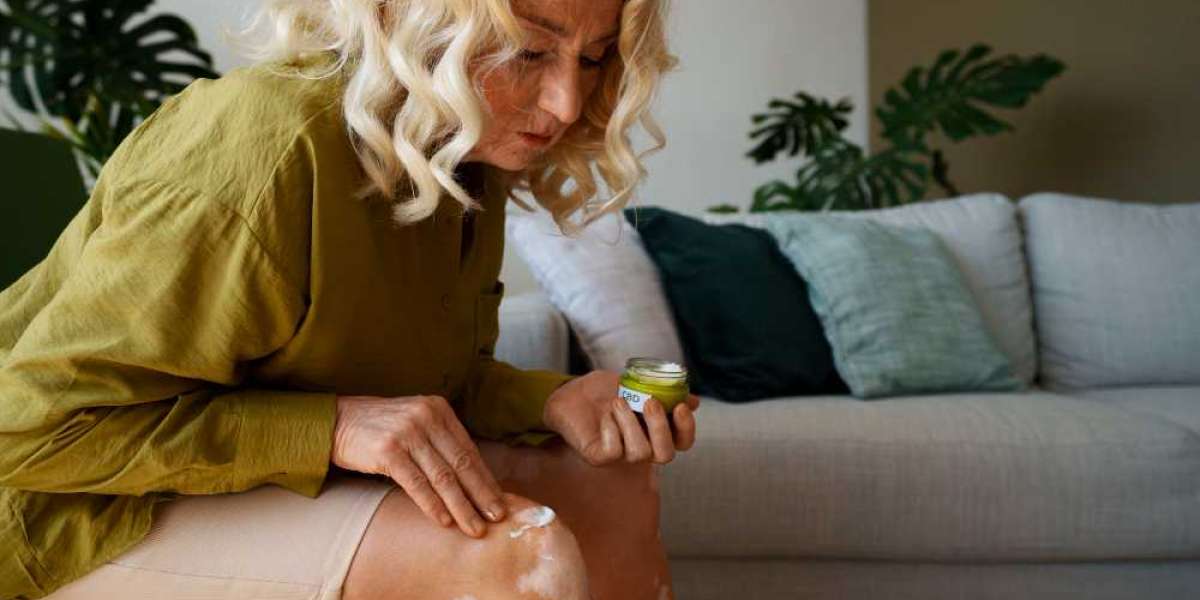In today’s world, where more people are turning to natural and sustainable living, herbal and organic wound healing products are gaining well-deserved attention. These products use the power of plants and natural ingredients to accelerate healing, reduce inflammation, and prevent infection—without the harsh chemicals often found in synthetic alternatives. Whether it’s a minor scrape, a small cut, or irritated skin, these natural remedies are gentle yet effective.
Here’s a closer look at some of the most trusted and effective herbal and organic wound healing products you should consider adding to your first-aid kit.
1. Aloe Vera Gel
Aloe vera is one of the most popular herbal remedies for wound care. Its gel, extracted from the plant’s fleshy leaves, contains powerful anti-inflammatory and antimicrobial properties. It soothes burns, reduces redness, and speeds up the healing process by promoting new skin cell growth.
Best for: Sunburns, minor cuts, and abrasions
Why try it: 100% natural, cooling, and soothing on contact
2. Calendula Cream or Ointment
Calendula, derived from the marigold flower, is known for its antiseptic and anti-inflammatory effects. Calendula-based creams or salves can be applied directly to wounds to reduce swelling, fight bacteria, and encourage tissue regeneration.
Best for: Cracked skin, small cuts, insect bites
Why try it: Gentle on sensitive skin and safe for children
3. Tea Tree Oil Balm
Tea tree oil is a potent essential oil with antibacterial, antifungal, and antiviral properties. When diluted in a carrier oil or balm, it becomes an excellent remedy for preventing wound infections and speeding up healing.
Best for: Infected wounds, acne lesions, and fungal skin conditions
Why try it: Naturally fights infection without synthetic antibiotics
4. Manuka Honey
Manuka honey, harvested from bees that pollinate the Manuka bush in New Zealand, is a powerful natural healer. It maintains a moist wound environment, draws out toxins, and prevents bacterial growth. Unlike regular honey, it’s medically graded for wound care.
Best for: Burns, ulcers, and slow-healing wounds
Why try it: Clinically proven to accelerate wound closure
5. Comfrey Salve
Comfrey, often called “knitbone,” has been used for centuries to support skin regeneration and reduce inflammation. Comfrey salve is made by infusing the root or leaves in oil and then blending it into a balm.
Best for: Bruises, sprains, and surface wounds
Why try it: Promotes rapid cell growth and tissue repair
6. Plantain Leaf Poultice
Plantain (Plantago major) is a common backyard herb known for drawing out toxins and easing skin irritation. When crushed into a poultice or infused into an oil-based salve, plantain can relieve pain and promote healing.
Best for: Bee stings, splinters, and minor cuts
Why try it: Effective for “drawing out” impurities from wounds
7. Lavender Essential Oil
Lavender oil is known for its calming scent, but it also has powerful antimicrobial and healing properties. Mixed with a carrier oil or added to a healing balm, it soothes pain and helps prevent scarring.
Best for: Minor burns, small cuts, and scar prevention
Why try it: Calms nerves while healing skin naturally
8. Turmeric Paste
Turmeric contains curcumin, a compound with strong anti-inflammatory and antibacterial properties. A turmeric paste made with water or coconut oil can help cleanse wounds and support faster healing.
Best for: Superficial wounds, boils, and irritated skin
Why try it: A natural antiseptic from your kitchen spice rack
Choosing the Right Herbal Product
When selecting herbal and organic wound healing products, look for:
Certified organic labels to ensure no pesticides or harmful chemicals were used
Minimal ingredients to reduce the risk of irritation
Proper packaging to preserve freshness and potency
Reputable brands known for safety and transparency
Also, always do a patch test when trying a new herbal remedy, especially if you have sensitive skin or allergies.
Why Go Organic for Wound Healing?
Organic products reduce the risk of exposure to harsh preservatives, artificial fragrances, and petroleum-based ingredients. They are generally safer for children, people with sensitive skin, and anyone looking to live a more sustainable, toxin-free lifestyle.
Herbal remedies also support the body’s natural healing processes without suppressing symptoms or introducing synthetic substances. Many of these ingredients have been trusted for centuries in traditional medicine systems like Ayurveda, Traditional Chinese Medicine, and Indigenous healing practices.
Final Thoughts
Nature has long provided some of the best tools for healing, and today’s herbal and organic wound healing products are a blend of tradition and modern science. Whether you prefer ready-made creams or homemade salves, these gentle, effective products can be essential additions to your natural first-aid kit.
Start small, try a few, and see how your skin responds to these time-tested remedies. You may find that going natural is not only effective but also a more harmonious way to care for your body.



